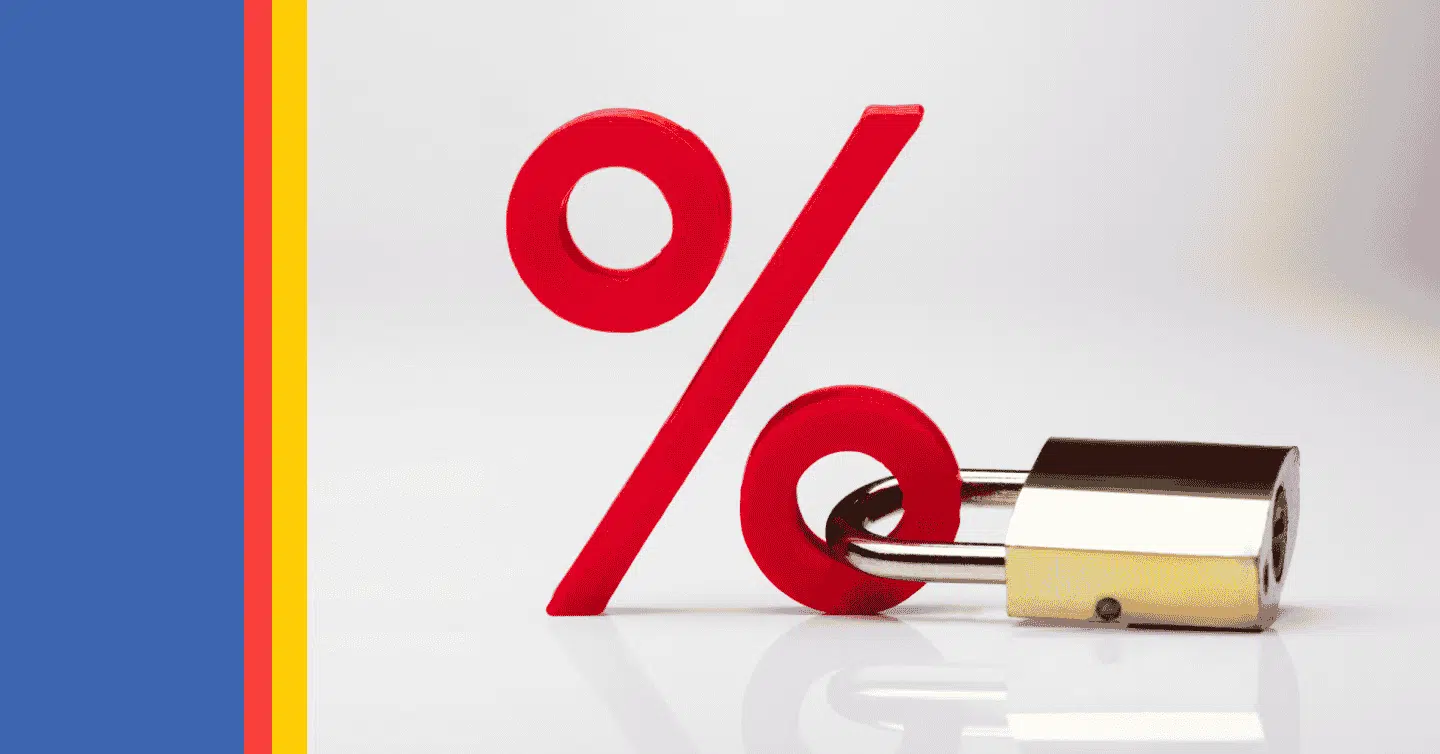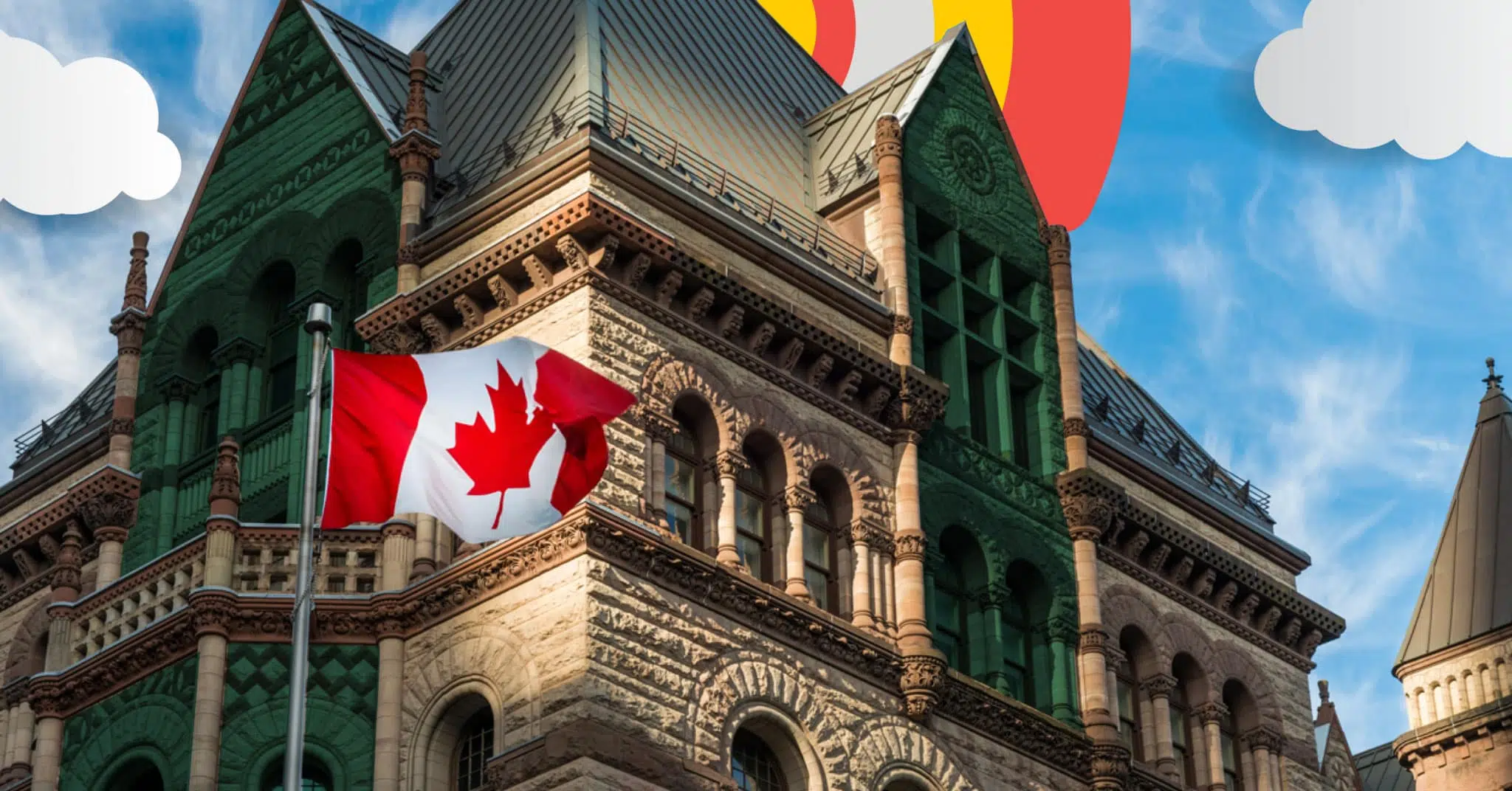Mortgage Rate Lock

Table of contents
The financial tools at your disposal in the Canadian housing market can significantly enhance your homebuying journey. One key concept to familiarize yourself with is the understanding of mortgage rate locks in Canada, which often piques the interest of prospective buyers. This process is crucial for anyone looking to buy a home or refinance an existing mortgage. A mortgage rate lock is an agreement with your lender that secures a specific interest rate for a set period, usually 30 to 180 days. This arrangement offers peace of mind, shielding you from potential interest rate hikes during the lock period.
The importance of a mortgage rate lock is significant, especially in a volatile market where rates can fluctuate quickly. The benefit of locking in a mortgage rate ahead of time is that you can more effectively manage your budget and financial obligations without the stress of increasing costs. This tool is especially advantageous for homebuyers finalizing their purchase, as it enables them to secure a favourable rate while completing necessary steps like inspections and paperwork. Overall, grasping and utilizing a mortgage rate lock can result in considerable savings and a more secure financial future as you navigate the intricacies of homeownership.
At nesto, we can lock in a rate for up to 150 days.
Key Takeaways
- Mortgage rate locks safeguard you against rising interest rates from 30 to 180 days by locking in your discounted rate.
- Mortgage rate holds can provide financial certainty and peace of mind in a fluctuating market.
- Consider locking in your rate if you anticipate an increase in rates, have an extended closing process, or desire stability
What is a Mortgage Rate Lock?
A mortgage rate lock, also known as a mortgage rate hold, is an agreement with your lender to secure a specific interest rate on your mortgage for a predetermined period. How long does a mortgage rate lock last? Your mortgage rate hold period varies between lenders, typically 30 to 120 days. However, some lenders may provide rate holds extending to 130 days (new mortgage at BMO), 150 days (new mortgage at nesto), or 180 days (existing mortgage at Scotiabank and Desjardins). The main advantage of locking in your rate is that it protects you from any potential increases in interest rates during the lock period, giving you peace of mind as you go through the homebuying process.
Obtaining a mortgage rate lock can help stabilize your borrowing costs. This crucial requirement in a changing market means that even if interest rates rise while your lock is in place, you can still borrow at the lower rate you initially secured. This feature can be especially beneficial for homebuyers worried about rising rates and wanting to keep their qualifying mortgage amounts intact throughout the process.
Mortgage Rate Locks in a Volatile Market
In a market where interest rates can change rapidly, the stability provided by a rate lock can be invaluable. Here are a few reasons why:
- Protection against rising rates: If interest rates increase after you lock in your rate, you won’t have to worry about paying higher monthly mortgage payments.
- Budgeting certainty: Knowing your interest rate upfront allows you to budget more effectively, knowing your changed payments will be.
- Peace of mind: In a volatile market, a rate lock can offer much-needed peace of mind, knowing that your interest rate is secure.
The Dynamic Canadian Housing and Mortgage Market
The Canadian housing market constantly evolves, influenced by economic growth, interest rate volatility, market trends, and government policies. In recent years, low interest rates have encouraged buying and selling activities and borrowers to pay off their mortgages faster. However, this environment is quite volatile, and decisions made by the Bank of Canada regarding interest rates can lead to significant shifts in mortgage rates, affecting the overall market.
This uncertainty can be problematic for those looking to purchase a home, coming up for a mortgage renewal, or looking to refinance their home or mortgage. One way to achieve stability in this unpredictable market is by utilizing a mortgage rate lock, which can protect against rising rates. This option can be especially advantageous for buyers who want to secure a favourable rate while they purchase a home. Getting pre-approved for a mortgage is recommended before you start searching for a home, as it could improve your chances of success in the housing market. This prepostioning step will help clarify your budget and make you more attractive to sellers. As rates increase, your stress-tested mortgage qualifying amount will decrease, so locking in your rate secures the amount of home you can afford once added to your downpayment.
In recent years, variable-rate mortgages overtook fixed-rate mortgages in popularity due to Canada’s historically low prime rates between 2020 and 2021. These home loans usually have interest rates determined by the lender’s prime rate minus a specific discount. While a preapproval can ensure this discount for a limited time, the actual variability in the discounts provided by lenders is relatively small. Consequently, the advantages of obtaining a pre-approval for a variable-rate mortgage are limited, as the potential for significant savings isn’t as clear-cut as it may appear.
With the Bank of Canada expected to lower rates well into 2025, many homeowners with variable or adjustable mortgages are considering locking in their mortgage rates or modifying their current mortgage terms. The increase in variable rates over the past few years was anticipated, but the magnitude of the hikes has surprised many. As inflationary pressure concerns abate, rates could keep stabilizing. However, mortgage rates forecasts indicate that once inflation, including mortgage interest and rent prices within the shelter costs category, hits or drops below the Bank of Canada target of 2%, both fixed and variable rates should be much lower, around 3%, but unlikely to revert to the extremely low levels seen during the COVID-19 pandemic, a more typical range of around 3% could be expected in the future.
We’re curious…
How a Mortgage Rate Lock Works
A rate hold is when a lender guarantees the interest rate you’ve been quoted as long as you meet the necessary qualifications. Guaranteed rates act as a promise that your rate will stay the same for a set period, helping you plan your finances more effectively. Lenders typically offer rate holds for various durations, such as 30, 45, 60, 90, or even 120 days. It’s important to remember that some of the most competitive mortgage rates are often linked to a quick close, requiring closing within a shorter timeframe of 30 to 60 days. If borrowers delay the mortgage process and don’t close before the rate hold expires, they risk losing the guaranteed rate, significantly if market rates have increased.
If a higher interest rate drops after you secure a rate hold but before your mortgage closes, many lenders will let you take advantage of the lower rate at closing. However, it’s crucial to understand that the new rate might not be the lender’s best promotional rate. While most lenders, banks and financial institutions offer mortgage options for pre-approvals and rate holds, not all do, so it’s wise to check with your lender. Additionally, rate holds for renewals and refinances are often shorter than those for new mortgages, but not always from Scotiabank, offering up to 180 days on internal early mortgage renewals. Some promotional offers may come with a “no float down” policy, meaning that even if market rates decrease, the lender won’t adjust your locked-in rate downward.
Mortgage Rate Hold Periods For Canadian Lenders
| Lender | Lock-In Period (Days) |
|---|---|
| Scotiabank | 120 (new) – 180 (existing) |
| Caisse Desjardins | 90 (new) – 180 (existing) |
| Nesto | 30 (existing) – 150 (new) |
| BMO | 120 (existing) – 130 (new) |
| RBC | 120 |
| TD | 120 |
| Laurentian (B2B Bank) | 120 |
| First National Financial | 120 |
| Canwise (Ratehub) | 120 |
| Think Financial (True North) | 120 |
| Pine | 120 |
| Meridian | 120 |
| Quest Mortgage | 120 |
| Simplii Financial | 120 |
| Tangerine | 120 |
| Manulife Bank | 120 |
| EQBank | 120 |
| CIBC | 90 (existing) – 120 (new) |
| MCAP | 90 (existing) – 120 (new) |
| Candian Western Bank (Optimum) | 90 |
| National Bank | 90 |
Should You Lock in Your Mortgage Rate?
Deciding to lock in your mortgage rate requires careful consideration of several factors, including the current market conditions, risk tolerance, and financial goals. If you believe interest rates are likely to rise, locking in a rate now can be a smart strategy to shield yourself from potential increases in your payments. Conversely, if mortgage rate forecasts indicate that rates might decrease, waiting and trying for a lower rate may be better. It’s also crucial to consider the lock-in periods offered by different lenders. An extended lock-in period can give you more time to find the right home, but it might limit your choices if rates drop significantly.
When deciding whether to lock in a variable-rate mortgage (VRM) or adjustable-rate mortgage (ARM), it’s crucial to grasp the consequences of that choice. While getting a pre-approval for a variable-rate mortgage is smart, locking in the rate might not offer substantial benefits. A rate hold can secure your discount from the prime rate, but the final interest rate will still be subject to fluctuations in the prime rate. Even with a locked variable rate, borrowers will not find the stability they anticipate, as fluctuations in the prime rate can impact their overall mortgage qualifying amount.
When to Consider a Mortgage Rate Lock
While rate locks offer significant benefits, they’re not always the best choice for everyone. Here are a few scenarios where you might want to consider locking in your rate:
- Rising rate environment: If market indicators suggest interest rates are likely to increase, locking in a favourable rate now can protect you from future hikes.
- Long closing period: If you anticipate a more extended closing period on your home purchase, a rate lock can provide protection.
- Preference for stability: A rate lock can offer peace of mind if you value predictability and don’t want to gamble on potential rate drops.
Factors to Consider When Choosing a Rate Lock
- Lock period: The longer the lock period, the more protection you have against rate increases, but you might also miss out on potential rate drops if the lender’s fine print doesn’t allow for float downs.
- Fees: Some lenders may charge a mortgage rate lock fee or add a premium to your rate to hold your rate/discount, so be sure to factor this into your decision.
- Float down options: Some lenders offer float down options that allow you to take advantage of lower rates if they occur during the lock period.
Rate Hold Tips for Homebuyers and Homeowners:
- Get pre-approved for a mortgage before you start house hunting. A mortgage pre-approval or prequalification will give you a clear idea of how much you can afford and make you a more attractive buyer to your real estate agent and selling agents.
- Shop around for the best mortgage rates. Don’t just go with the first lender you find. Compare offers from multiple lenders to find the best deal.
- Consider working with a mortgage broker. A mortgage broker can help you navigate the rate shopping and underwriting process and find the best mortgage.
- Before you sign anything, ensure you understand all the terms and conditions of your mortgage. If you have any questions, don’t hesitate to ask your lender or mortgage broker.
Frequently Asked Questions (FAQs) on Rate Holds
How much does it cost to get a mortgage rate lock?
Most lenders offer rate holds at no additional cost. However, some might charge a fee or require a non-refundable deposit. It’s essential to clarify these details with your lender upfront.
Can I lock in a variable mortgage rate?
While technically possible, it’s less common and less beneficial. Variable rates are tied to the prime rate, which can fluctuate, making the lock-in less valuable.
What happens if I don’t close my mortgage within the rate hold period?
Typically, the mortgage rate hold will expire, and you’ll be subject to the prevailing interest rates. Some lenders may offer extensions for a mortgage rate lock fee, but this is not guaranteed.
What if interest rates decrease after I lock in my rate?
With most lenders, you’ll be stuck with your mortgage rate hold even if rates go down unless they offer a float down.
Does a mortgage rate lock guarantee my mortgage approval?
No, a mortgage rate lock only guarantees your rate/discount when you receive your preapproval or when a mortgage renewal or mortgage refinancing is tentatively approved. However, this is not to be considered a mortgage approval. Mortgage approval is granted once the lender has fully completed the required verification.
Secure Your Rate
Understanding mortgage rates in Canada can be complex, making it difficult for the average first-time home buyer (FTHB) to navigate. However, knowing options like mortgage rate locks, also known as rate holds, can significantly improve your ability to make cost-saving decisions, ultimately helping you achieve homeownership while saving your money.
Although the process may feel complex, options like rate locks or tools like a mortgage payment calculator can make your journey easier and provide more precise direction. If you’re considering securing a mortgage rate hold, it’s essential to research different lenders, assess their offers, and fully understand the terms and conditions involved. By staying informed and proactive, you can increase your chances of securing a mortgage that meets your needs and supports your homeownership goals.
It’s important to compare mortgage rates from various lenders rather than settling for the first offer you receive. A mortgage broker can make this process easier by guiding you to the best options available. Before signing, ensure you fully understand the terms of your mortgage agreement and don’t hesitate to ask your lender or broker for any clarifications. Seek out experts who can help you navigate the mortgage process.
At nesto, we offer Canada’s most extended mortgage rate period for purchases or a switch/transfer, so contact nesto mortgage experts to discover your options and find the best mortgage rate that fits your needs.
Ready to secure your dream home? Contact nesto’s mortgage experts today and let us help you find the best mortgage solutions tailored to your needs.
Why Choose nesto
At nesto, our commission-free mortgage experts, certified in multiple provinces, provide exceptional advice and service that exceeds industry standards. Our mortgage experts are non-commissioned, salaried employees who provide impartial guidance on mortgage options tailored to your needs and are evaluated based on client satisfaction and advice quality. nesto aims to transform the mortgage industry by providing honest advice and competitive rates using a 100% fully digital, transparent, seamless process.
nesto is on a mission to offer a positive, empowering and transparent property financing experience – simplified from start to finish.
Contact our licensed and knowledgeable mortgage experts to find your best mortgage rate in Canada.
Ready to get started?
In just a few clicks, you can see our current rates. Then apply for your mortgage online in minutes!















